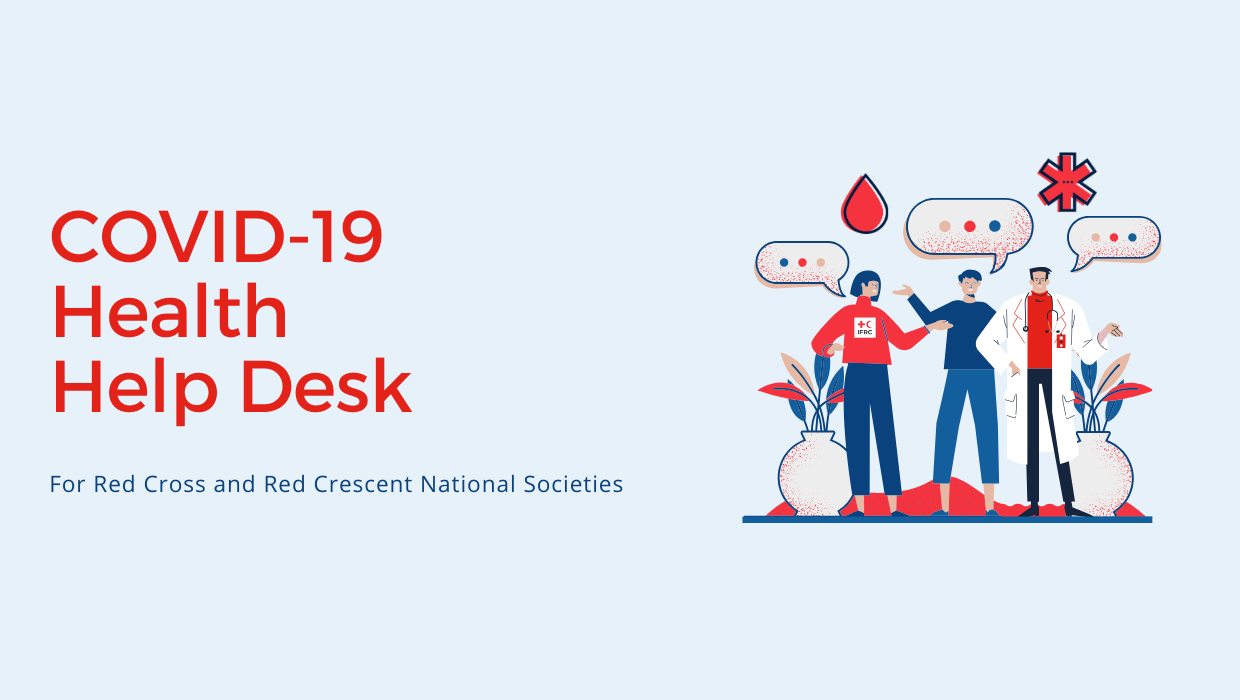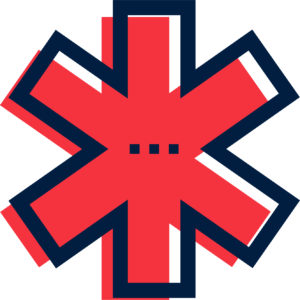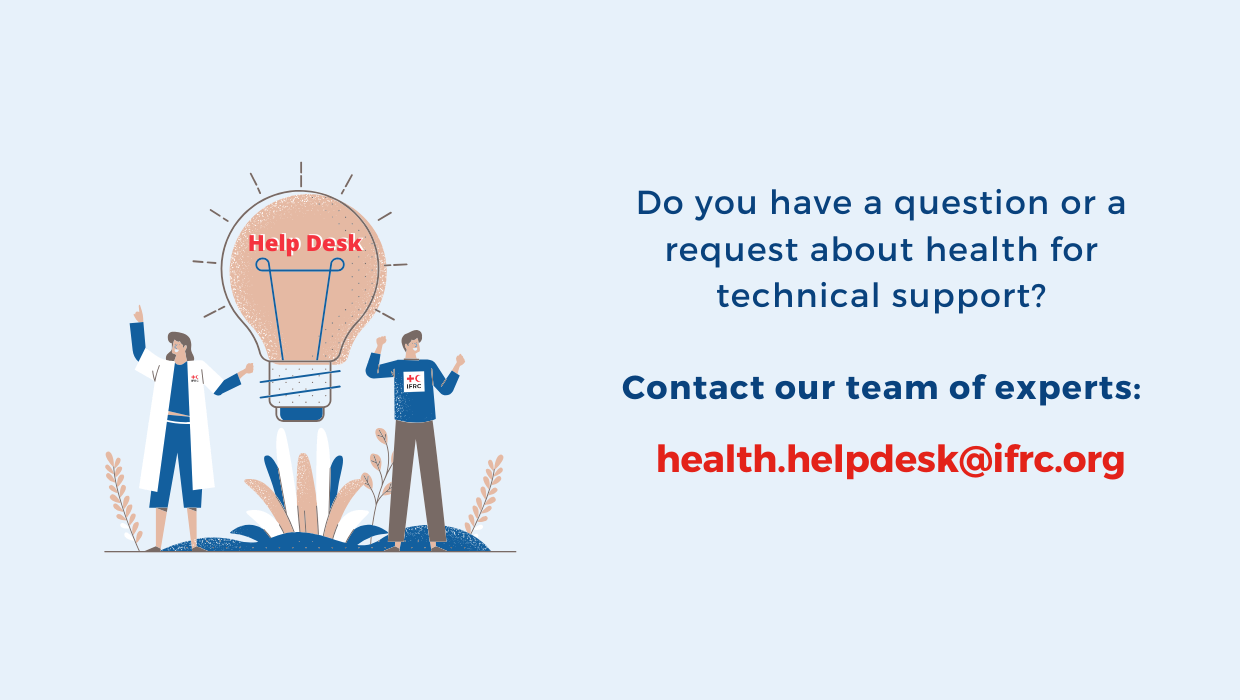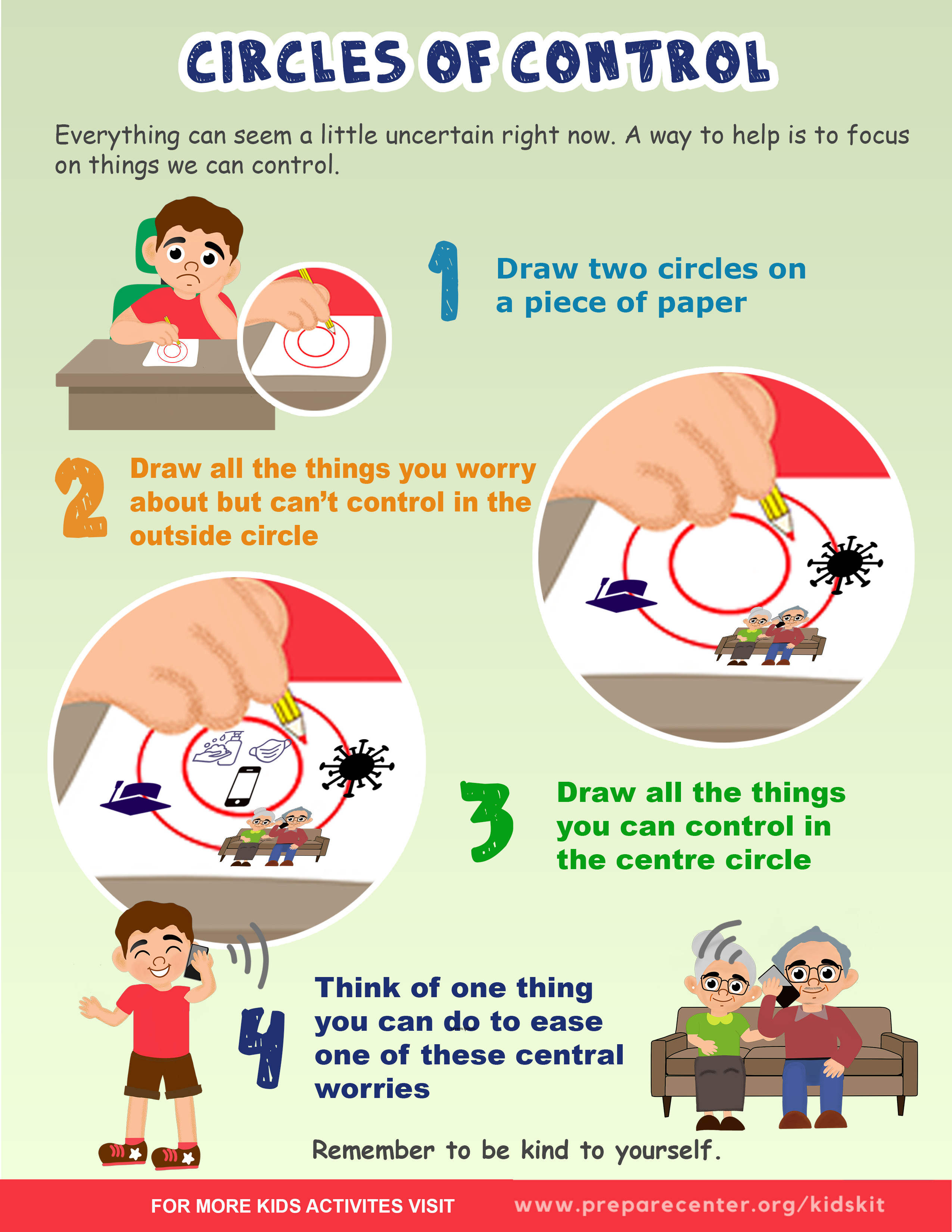COVID-19 Health Help Desk
Test your knowledge
Table of Contents
Add a header to begin generating the table of contents
Tools and Guidance
Review the following resources' pages which include guidance materials, checklists, information assets, and more:
General IFRC Guidance
Overarching IFRC guidance on how to provide health support in each phase of pandemic response.
Disaster Risk Management
Climate Smart Disaster Risk Management during the COVID-19 Pandemic
General Information and Response Options
- Risk, evidence, and modeling
- Strategic guidance
- Health care in danger
Public Health Measures to Prevent & Suppress Transmission
- Epidemic control for volunteers
- Fragile, complex and humanitarian settings
- Home care
- Management of the dead
- Point of entry and screening
- Quarantine
- Risk communication, community engagement, and accountability
- Surveillance and contact tracing
- Detention centres
- Testing
Vaccination against COVID-19
- Introduction of vaccines
- Development of national vaccination plans
- Vaccine acceptance
- Community engagement for vaccination
Community and Home Based Care & Older People
- Home care for coronavirus patients
- Advice on the use of masks
- Guidance for working with older people
Personal Protective Equipment
- Cloth Masks
- Personal protective equipment guide
- Quality assurance of PPE
Water, Sanitation & Hygiene (WASH)
- Recommended PPE for WASH activities
- Guide on how to encourage community-level handwashing
- Waste management
Clinical and Prehospital Care
- Infection prevention and control
- Clinical response
- Prehospital care
Mental Health & Psychosocial Support (MPHSS)
- Psychological coping during disease outbreak - elderly and people with chronic conditions.
- Mental health and psychosocial support for staff, volunteers, and communities.
Maintaining Essential Community and Clinical Health Services During the Pandemic
- Operational guidance
- Education
- First Aid
- Harm reduction for people who use drugs
- HIV care
- Community-based health
- Community-based health and first aid
- Malaria
- Non-communicable diseases
- Sexual and reproductive health
National Society Health Preparedness
- Guidance
- Preparedness for Effective Response
- RCRC Movement Civil-Military Relations
- RCRC Epidemics and Pandemics Resolution
- Key messages
Volunteer and Staff Health and Wellbeing
- Mental Health and Psychosocial Support
- IFRC Staff Health Guidance
- Guide for spontaneous volunteers
- Checklist - mobilization
Blood Services
- Blood safety
- Securing blood supply
- up-coming webinars
Protection, Gender, and Inclusion
- Sexual and Gender-based violence
Related Links
Find additional Health resources from partner organizations.






